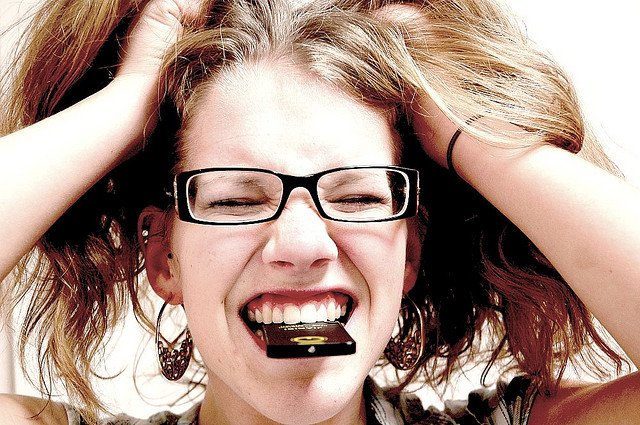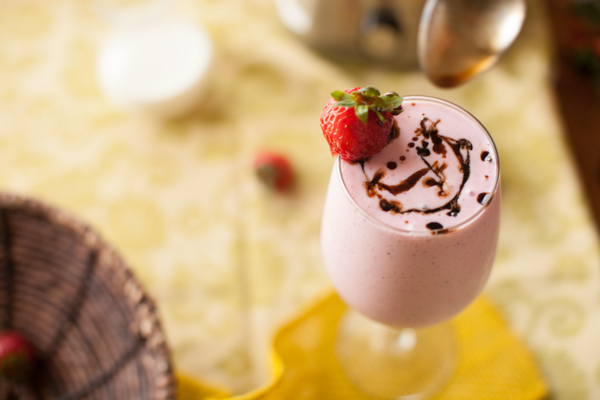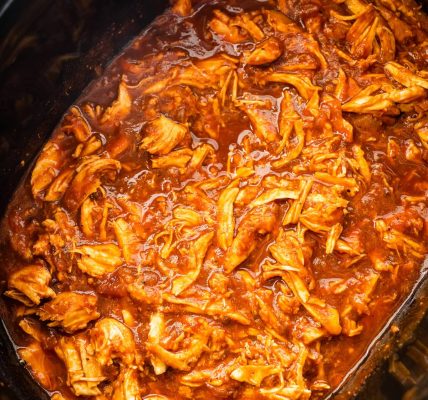Healthy Eating Tips –
That unstoppable craving driving you to eat something sweet.
Perhaps an uncontrollable yearning for ice cream, cake or chocolate.
You’ve been there, right?
But why do we overeat? And why is it that some are more prone to struggling with this than others?
It’s difficult to fathom that a simple cookie can have such power over you at times, when every fiber of your body is telling you not to eat it!
 Perhaps it’s a willpower issue. Or, maybe there’s more to it than that.
Perhaps it’s a willpower issue. Or, maybe there’s more to it than that.
Some health professionals claim certain foods are as addictive as heroin or cocaine.
Others believe this is ridiculous — it’s merely a matter of mind over matter, they say.
So let’s think about this in more detail…
The Research: Is Sugar Addictive?
An interesting study in rats is worth making mention of.
Sugar dependance
Researchers fed rats 25{967bf23b37ec6a673a83041540b3f904a815b4119ddf673afb961c1e7592ebdd} glucose in addition to their normal feed.
It was concluded that an excessive intake of sugar led to symptoms similar to withdrawal from morphine or nicotine, and that the rats had become sugar-dependent.
More addictive than drugs
In another study, rats were given Oreo cookies.
In this trial they noted the cookies activated cells in the brain area more than cocaine or morphine.
Our research supports the theory that high-fat/high-sugar foods stimulate the brain in the same way that drugs do… It may explain why some people can’t resist these foods despite the fact that they know they are bad for them.
While this is interesting, let’s consider some of the studies in humans…
A further study also suggested sugar was more addictive than drugs, in this case cocaine.
And, in a review of the evidence these researchers concluded,
There is substantial evidence that some people lose control over their food consumption, suffer from repeated failed attempts to reduce their intake, and are unable to abstain from certain types of food or reduce consumption in the face of negative consequences… In sum, there is considerable evidence suggesting that some foods may trigger an addictive process. Under such conditions, the brain behaves much as it does when exposed to classic drugs of abuse.
Similar to tobacco
Researchers in this study concluded that foods made largely from refined sugar and flour have the same addictive qualities as tobacco.
Lead researcher Dr Thornley said this;
Heavily processed carbohydrates such as cornflakes, sweets and croissants quickly raise the amount of sugar in your blood. This rush of sugar stimulates the same areas of the brain that are involved with addiction to nicotine and other drugs… Drug addicts have to keep taking larger amounts of their chemical of choice. They find it difficult to stop, they keep doing it despite negative consequences and they feel depressed if they do stop. People do all those things around refined carbohydrates.
Stimulates cravings
In another study, when the researcher compared a low glycemic index (GI) meal with a high GI meal, the high GI meal lead to increased hunger, and it stimulated certain brain regions associated with reward and craving.
What particularly surprised the researchers was that when the high glycemic meal was eaten the brain region being studied lit up in all subjects.
Some concluded this was proof that foods which spike blood sugar are biologically addictive.
Even given the evidence, I do find myself wondering if we can really go as far as to say that sugar is as addictive as a Class A drug, don’t you?
The pleasure center
The nucleus accumbens (the area of the brain studied) releases dopamine and serotonin in response to stimuli from your senses.
The thing is, practically everything you do involves this pleasure center.
Here are a few things that could be said to effect the same pleasure centers as a particular drug:
- The beat of a certain type of music you enjoy.
- Adrenaline-rush activities like skydiving or even high intensity sprints.
- Caffeine.
- Nicotine.
- Alcohol.
- Drugs like cocaine or heroin.
- A tear-jerking movie scene.
- Laughter.
So, when the researchers concluded that sugar effects the same pleasure centers as heroin, this was actually a scientifically accurate fact.
However, that doesn’t necessarily make this a piece of information that is of any significance in your life.
Claiming that “sugar is addictive” makes people have an irrational fear of food.
I don’t find that helpful.
There is, however, no escaping the fact that high sugar foods can be particularly difficult for people to resist.
And, it’s fair to say most people are eating waaaay too much sugar.
Habit vs Addiction
The fact is this, eating lots of sugar leads to a habit that is difficult to control.
Your taste buds learn to love the foods they are exposed to most, and want more of them as a result.
So, the sweeter your diets becomes, the more sugar you tend to prefer.
It’s the same with salt, or spicy foods.
If you want to call that an “addiction” then so be it — if you struggle with this, clearly something needs to change!
To rid yourself of sugar cravings, you need to lower the amount of sugar in your diet.
How to Reduce Your Sugar Intake
Here are 3 strategies for conquering your sugar “addiction.”
1. Remove the trigger
I recommend totally omitting sugar from your diet as a way of taking back control of your health.
While this may appear drastic, I make no apology for that.
“People habitually consume around 22 teaspoons of sugar per day. Avoidance is a necessary step to recovery!” – Click to Tweet
Sugar is different from other foods in that your cravings are refueled every time you give in to them.
So, stop feeding the fire for 5-7 days and just see how you feel.
This will help to normalize your sugar tolerance, and after than, should you choose to, you can reintroduce it into your diet again in smaller amounts for pleasure, not habit.
Quitting sugar is not going to be a walk in the park. However, if you have a strategy in place that will help you get through it.
Begin by removing all sugary/trigger foods from your home.
I’d go as far as saying it’s pretty much impossible to succeed if you ignore this step!
Don’t give yourself the opportunity to cheat, your so-called ‘willpower’ will not be strong enough. Trust me!
2. Maximize Your Diet
Eating well will also help you to overcome the hold sugar has over you.
You see, when your body is properly nourished, permanently kicking a sugar habit is entirely achievable.
Balanced, nourishing meals are satisfying, and will help you to control or eliminate your cravings.
Everyone will be a little different in what they need to feel satisfied, but aim for about 50 percent of your meal to be vegetables, have a good portion of protein, maybe some legumes, a some healthy oils or other fats.
Don’t get me wrong, eating a healthy diet is not going to kill your cravings overnight, but it is essential if you are to permanently cut your sugar intake, because it ensures your body has everything it needs.
Making sure you have alternative foods available will also help.
Stick to things that are satisfying and nutritious at the same time – raw nuts, natural yogurt, fruit, vegetables, olives, coconut oil, cold cuts of meat etc.
In the initial stage of your no-sugar phase, you should also stay away from foods with hidden sugar sources.
Things like sauces and condiments are big offenders. Also, stay clear of artificial sweeteners.
3. Alter your behavior
It’s good to remember that all cravings pass, despite how strong you feel they are at the time. This is why distractions work.
Again, this is going to be quite an individual thing, but if your cravings are triggered by a certain environment or time of day, then you need to come up with a solution based on that.
I suggest planning in advance exactly how you will deal with your craving. Don’t leave it to chance, because that’s when you’ll be weakest and likely to cave in.
Your plan of action may include strategies like avoiding walking past your favorite bakery. Or choosing different foods or drinks during certain activities (herbal tea rather than a creamy coffee and sticky bun). Perhaps choosing different activities (the gym rather than the cinema).
You get the idea!
The first couple of days are usually the worst part, so persevere and you should start to notice your cravings have subsided substantially by the end of the sugar fast.
Re-introducing Sugar
To continue progressing you need to maintain a lower sugar intake than what was normal for you before.
This will help your new habits to become a lifestyle habit for you, and eventually replace your old habits.
Once you get over the initial stage, you can start to have sweet foods here and there in your diet.
I strongly urge you, however, to stop and ask yourself each time you reach for something sweet, “why am I putting this into my mouth?”
It is habit? Circumstance? A one off occasion? Or because everyone else is eating it?
The goal of doing this is not always to stop you eating a sugary food, but to help you find a way to allow sugar into your diet as a treat and not a habit.
Have you experienced uncontrollable cravings for sugar and refined foods? How do you deal with that?
If you haven’t got on my exclusive email list, read these 7 reasons why you should subscribe
The post What You Need to Know About Sugar Addiction appeared first on Healthy Eating Tips.
(c) Healthy Eating Tips – Read entire story here.









